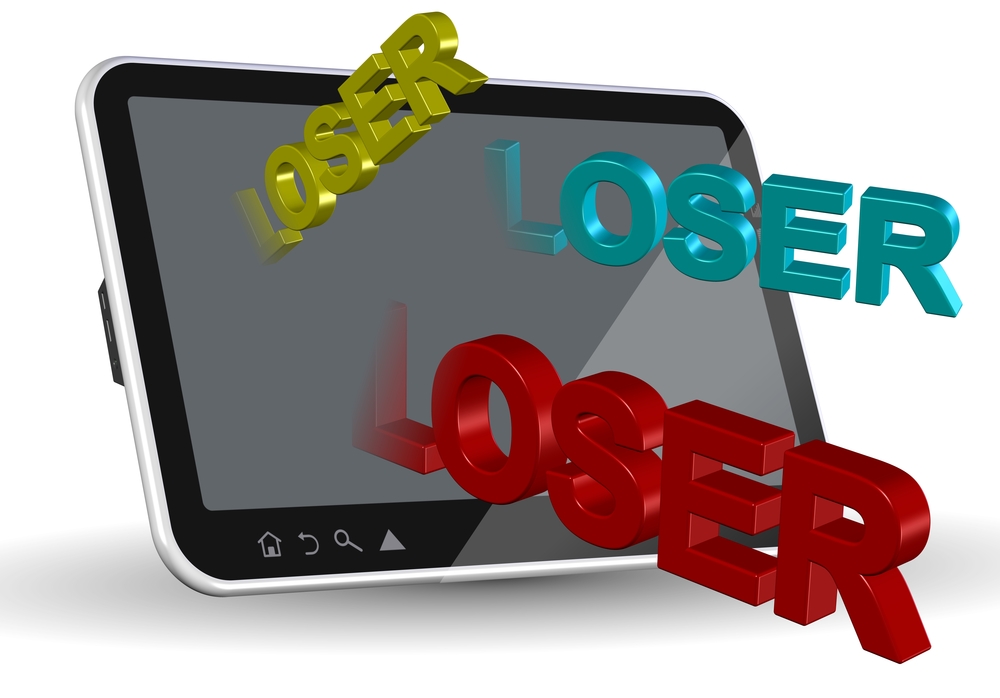
Tablets devastate laptop market
The white box battle is on, and laptops are losers. The big trend in tablets isn't iPad, contrary to public convention, but non-big-brand slates, which account for one-third of shipments, according to NPD DisplaySearch. Their success is good for Android, bad for Apple and worse for notebooks.
The early DOS/Windows PC market succeeded largely because of clones (like those from Compaq) and white label/box manufacturers and build-your-own enthusiasts. BYO isn't a tablet trend, but white box is, and its greatest impact is growth markets PC manufacturers count on -- or at least did.
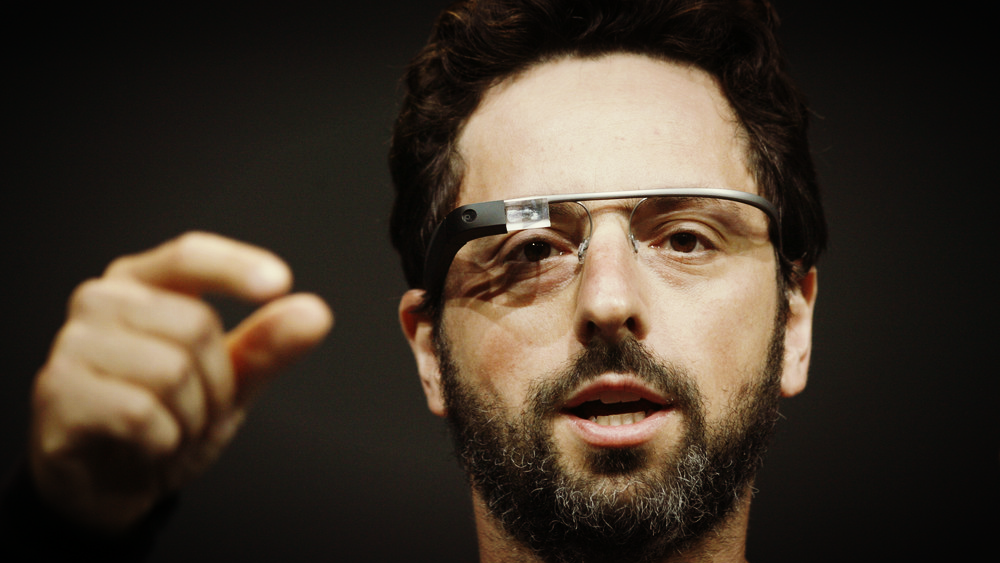
The sneaky thing about Google Glass
Remember when Bluetooth phone headsets came along and suddenly there were all these people loudly talking to themselves in public? Schizoid behavior became, if not cool, at least somewhat tolerable. Well expect the same experience now that Google Glass is hitting the street, because contrary to nearly any picture you can find of the thing, when you actually use it most of your time is spent looking up and to the right, where the data is. I call it the Google Gaze.
Only time will tell how traffic courts will come to view Google Glass, but having finally tried one I suspect it may end up on that list of things we’re supposed to drive without.
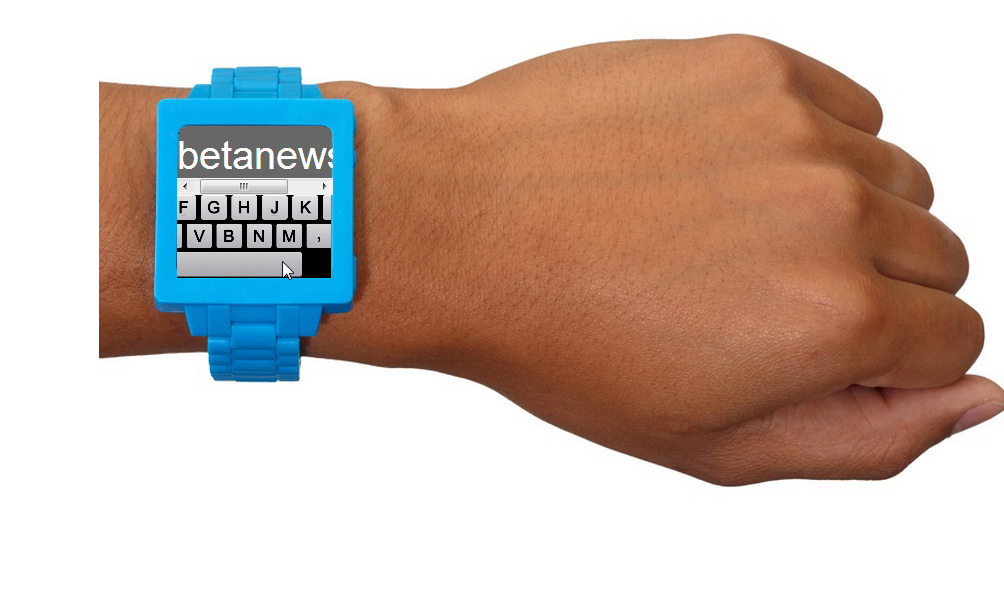
ZoomBoard is a clever QWERTY keyboard for smartwatches
If the rumors are to be believed, every company in the tech world is currently working on a smartwatch. Apple was among the first to be linked to a wrist device, but since then we’ve heard similar development stories concerning Samsung, Microsoft, Google, and LG, to name just a few.
Assuming at least some of those rumored watches come to fruition, the developers are going to have to find a way around the issue of typing on a tiny smartwatch face, but researchers from Carnegie Mellon University, Pittsburgh, Pennsylvania, have come up with what they think is an ideal solution.
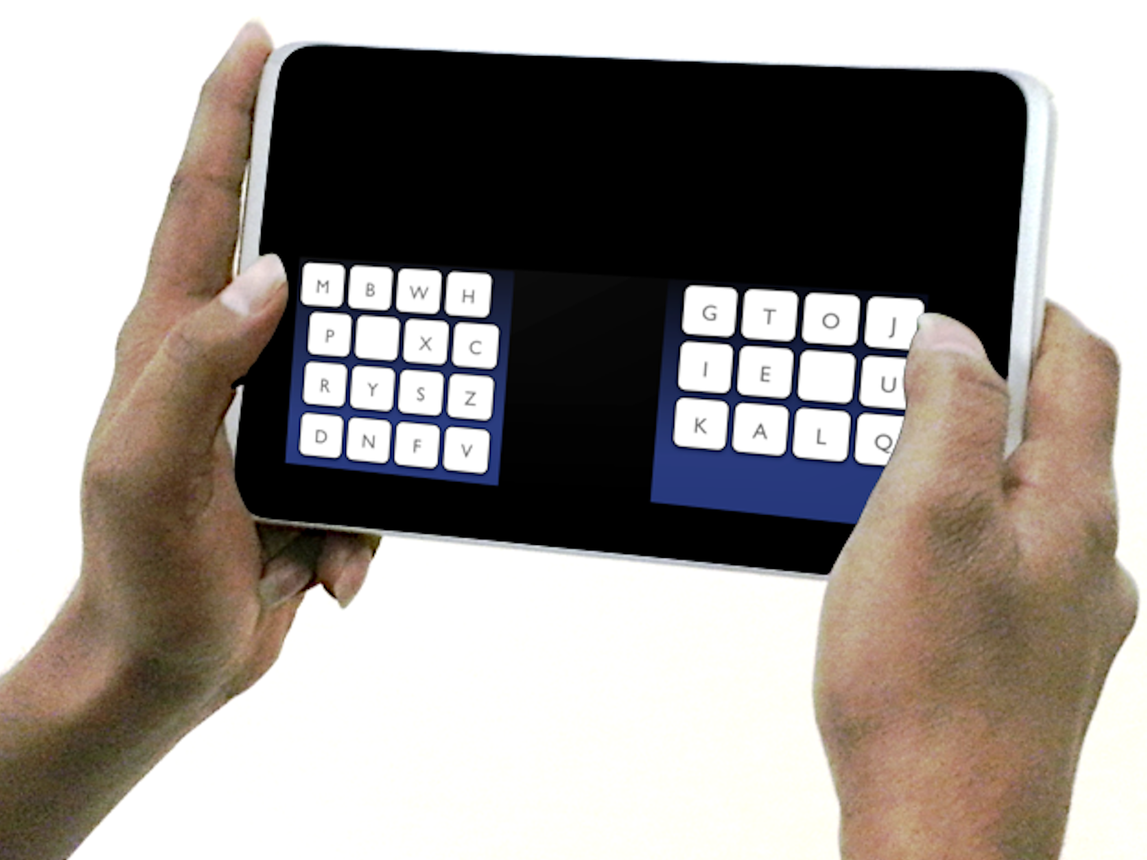
Forget QWERTY it's time for KALQ
Typing on touchscreen devices is very different from using a conventional keyboard and the traditional layout doesn’t help much. Researchers at the University of St Andrews, the Max Planck Institute for Informatics and Montana Tech have come up with a new layout that claims to allow tablet users to thumb type 34 percent faster.
Named KALQ after the order that the characters appear, it's been developed to provide optimal character positions when typing on a tablet. By spreading the characters used in commonly typed words such as "on", "see", "you" and "read" which on a QWERTY keyboard would all need to be typed with one thumb, KALQ speeds up typing and minimizes strain.
Do consumers really want touchscreen PCs? (Because I don't)
I own an iPad, which I love dearly. I use it for lots of things -- games, email, browsing the web, social networking, writing, viewing photos and video, and remote accessing my PC. The iPad, like all tablets, is a true jack of all trades and a master of some too.
But, try as I might, I can’t use it for "real" tasks. While it’s fine for writing small-ish articles on, I could never write a novel on it -- and I’ve tried. For some reason, I just can’t connect with typing on a touchscreen in the same way I do when typing on a proper full-size keyboard. And I could never imagine attempting detailed Photoshop work on a touchscreen either (well, not without a fine stylus at least).

ServicePower lets firms manage their workforces in the cloud [Q&A]
ServicePower -- a mobile workforce management software provider -- is seeing more and more companies turning to a workforce model that relies on a mix of full-time employees, third-party contractors, and independent technicians being brought together and managed seamlessly in one place using the power of the cloud.
I chatted with Mark Duffin, CEO and president of ServicePower, about the changes he’s seen recently, the data his firm collects, and why cloud deployment has become so important to his company and its clients.
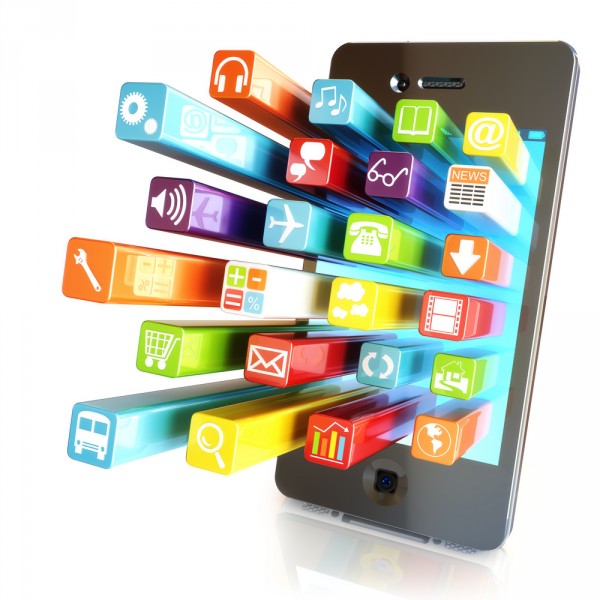
EE to double the speed of its 4G network in the UK
EE has announced plans to double the speed of its 4G network in 10 British cities, increasing the maximum theoretical speed to 130Mbps, or around 80Mbps in the real world. The mobile operator will also be doubling the average speeds for 4GEE customers to more than 20Mbps.
Double-speed 4G, as the improved offering will be known, will be rolling out to Birmingham, Bristol, Cardiff, Edinburgh, Glasgow, Leeds, Liverpool, London, Manchester, and Sheffield by the summer.
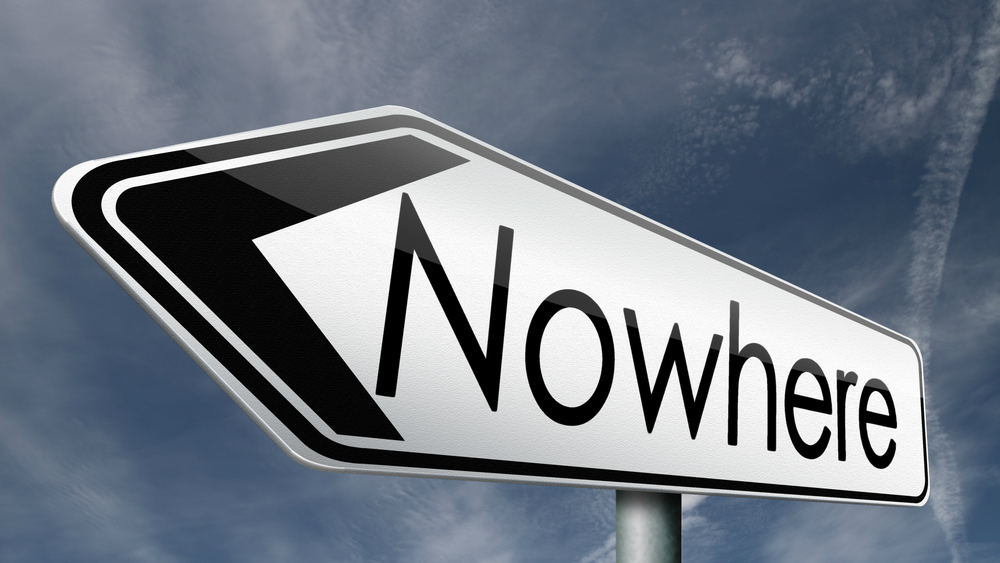
Microsoft is nowhere near death's door
I am both a Microsoft fanboy and hater, depending on which day I read comments from our BetaNews faithful. The truth be known, I consider myself neither. I would say it this way: I am a fanboy of what works and is useful to me and hater of everything on the opposite side of that line. I use products from many manufacturers, but yes, Microsoft powers all of my home computers, save the server, which is FreeBSD. Google is also a big part of my daily life, as is Adobe and many lesser-knowns.
For two days now, debate rages across the Internet about an analyst's content that Microsoft could be irrelevant within four years. I could do nothing but laugh when I read this. This revelation derives from Gartner report that states: "While there will be some individuals who retain both a personal PC and a tablet, especially those who use either or both for work and play, most will be satisfied with the experience they get from a tablet as their main computing device". Some individuals? By that, do you mean those who have jobs?

With its new video calling feature can Vonage Mobile really take on Skype? [Q&A]
On Tuesday, Vonage introduced free video calling into its mobile app for iPhone and Android, rounding out a suite which already offers features like free app-to-app calls, texts, photo and location sharing, as well as international calling.
I chatted to Nick Lazzaro, Vonage’s SVP Product Development, Information Technology and Managing Director Mobile Services, about the new addition, the company’s plans for the future, and what he thinks is next for the mobile industry.
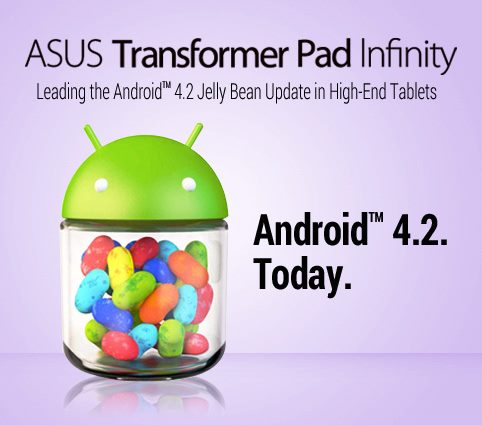
Android 4.2 Jelly Bean comes to ASUS Transformer Pad Infinity
One month after the company updated the Transformer Pad TF300 to Android 4.2, ASUS has announced that the Transformer Pad Infinity is also poised to receive the second Jelly Bean iteration.
On its Facebook page, ASUS posted a picture which lists the Android 4.2 update as coming to the Infinity, with the roll-out started yesterday. So what do you get from the upgrade?
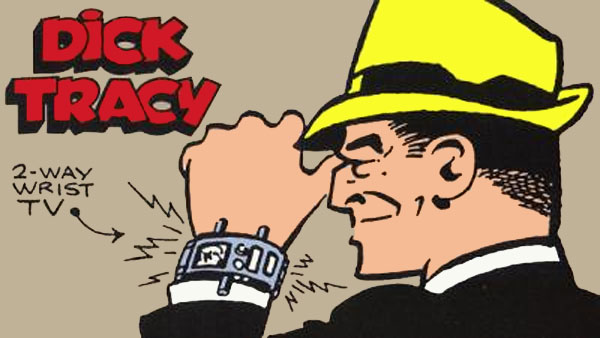
I'm a gadget lover who doesn't like smartwatches
If you're the sort of person that wants to wear a smartwatch every day, then I'm sorry but we can't be friends. I should likely be polite and say the same overused line, "It's not you, it's me", but frankly I don't care for such folks to tell a blatant lie. I'm the sort of person that loves gadgets so much that I can't get enough of them at least 10 hours a day, but I draw the line at wearing one on the wrist. I'm a gadget lover who doesn't like smartwatches.
I'm not a fool nor reject the idea. I understand why someone would want to wear a smartwatch, but only on a certain occasion. I certainly wouldn't take anything but a beater climbing, hiking, playing sports, running and so on. A smartwatch might be useful there, without having the fear of scratching or ruining an expensive timepiece. But aren't there better tools for the job? And, in real-life, a smartwatch makes even less sense as it's not a replacement for anything, really, not even a real watch.
What I really think about Google Chromebook Pixel
Second in a series. Fourteen days using Google's first computer, my decision is made: I would buy one and will someday (taxes are brutal, so my options are limited short-term). I firmly believe that most buyers willing to spend $1,299 (32GB WiFi) or $1,449 (64GB 4G LTE) will be satisfied with Chromebook Pixel. That's because I presume they wouldn't dole out that much without really examining how the computer would fit their lifestyle; also, Google seeks the same people coming from Windows who might buy MacBook Pro 13-inch.
Seven days ago, in my first-impressions review, I looked at the overall experience and price benefits from the perspective of hardware. Here, I start to answer larger question: Can Pixel be your main and only machine? For most people, the answer is an unequivocal "No". But "most people" isn't Google's target market.

PC shipments go from worse to, well, you don't want to know
IDC sure knows how to ruin a Monday. The analyst firm released final personal computer shipment tabulations for fourth quarter and all 2012 and made a dismal forecast for this year. If you're as tired of reading "PC is dead" stories as I am writing them, cover your eyes. Read no further. The horrors ahead are unbearable.
Global shipments will decline for the second year in a row in 2013, with Windows 8 giving no perceptual lift at all. Holidays were a bust, as will be the year. You can't fault Microsoft for trying, but there is only so much water you can throw off a sinking ship with buckets before it plunges beneath the waves. Perhaps only the rumored Windows Blue can save the PC now, but Win8 was supposed to do that -- and look what happened. When an analyst firm uses "underwhelming reception" to describe a Microsoft operating system, it's time to abandon ship.
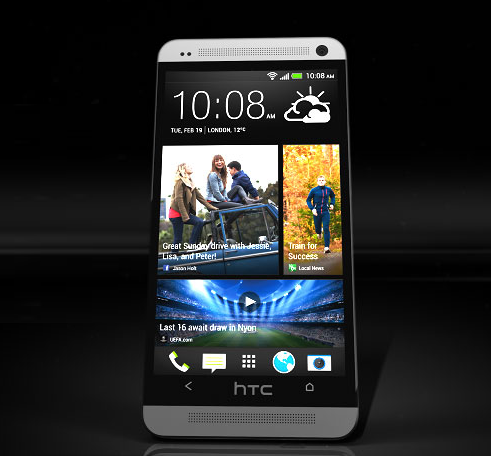
HTC One wins best new device at Mobile World Congress
HTC had a reason to celebrate yesterday as the HTC One picked up the Best New Mobile Handset, Device or Tablet at Mobile World Congress 2013, the final award of the 18th Annual Global Mobile Awards.
The main ceremony, hosted by actor, comedian and swimmer David Walliams, was held on Tuesday and saw the Galaxy S III named the best smartphone of 2012, beating out the likes of the Apple iPhone 5, Nokia’s Lumia 920, and HTC’s Droid DNA.
That wasn’t the only upset for Apple as the iPad missed out too, with Google’s Asus-built Nexus 7 scooping the award for Best Tablet of 2012.
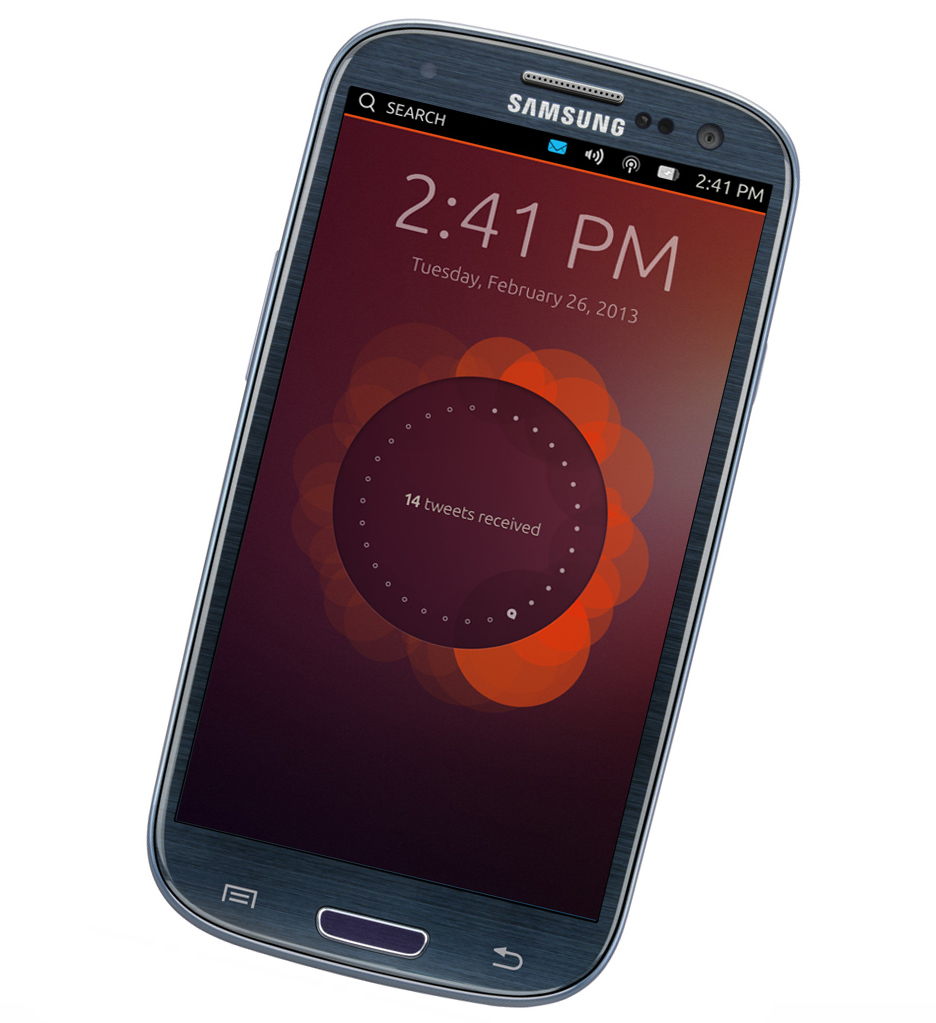
Ubuntu Touch developer preview coming to more devices soon
My colleague Mihaita Bamburic posted his first impressions on the preview version of Ubuntu Touch yesterday, and now Canonical has announced its intention to bring the early version of the mobile operating system to a further 20+ devices.
Originally only available to install on the Galaxy Nexus, Nexus 4, Nexus 7, and Nexus 10, the developer preview gives installers an early start with Ubuntu Touch, but it’s currently a taster, more than an actual, fully usable operating system.
